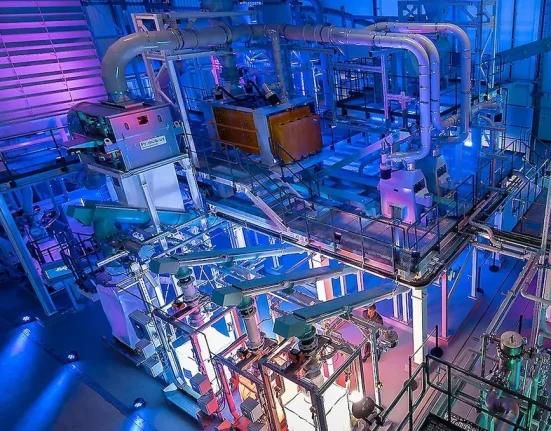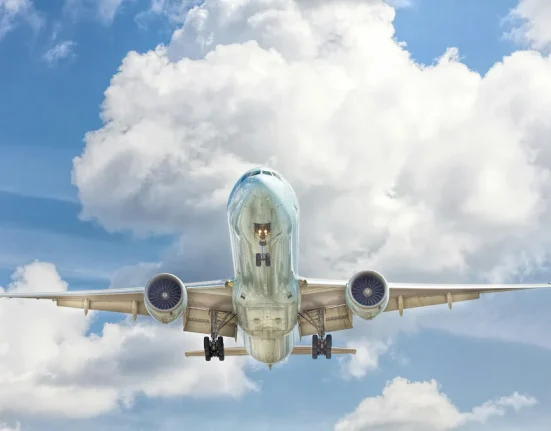DHL Group’s US$350m investment is positioned to upgrade infrastructure, improve service capabilities and create broader trade links in Sub-Saharan Africa
DHL Group has confirmed a US$350m investment in Sub-Saharan Africa to scale its operations and support the continent’s accelerating trade expansion.
Involving DHL Express, DHL Global Forwarding and DHL Supply Chain, the investment is positioned to upgrade infrastructure, improve service capabilities and create broader trade links across e-commerce, perishables, energy, life sciences and healthcare.
It will see each division delivering targeted improvements across air capacity, cold-chain capability and contract logistics. As intra-African trade increases and global demand for African exports grows, DHL is aiming to enable businesses of every size to compete more effectively across borders.
Strengthening trade infrastructure and access
DHL’s investment funds logistics infrastructure upgrades and introduces new capabilities to support businesses across key verticals. As DHL explains, this move aims to expand access for African companies operating across sectors including ecommerce, agriculture and healthcare, particularly where global standards for logistics are needed.
DHL’s own Global Connectedness Tracker shows Sub-Saharan Africa leads globally in trade growth during the first half of 2025, with trade value increasing 10% year on year. This outpaces growth in North America (7%), South and Central America (7%) and the Caribbean (5%).
John Pearson, CEO at DHL Express, says: “Africa is at a pivotal moment in its trade journey. Despite global volatility, the continent continues to show resilience and momentum. Our investment reflects confidence in Africa’s trajectory and DHL’s commitment to enabling the trade flows that drive inclusive growth.”
“By strengthening our network and capabilities, we aim to make it easier for African businesses – from small and medium enterprises (SMEs) to large corporates – to compete on the world stage.”
Forecasts from September 2025 project trade volume in Sub-Saharan Africa to grow 4.3% annually between 2025 and 2029. This rate ranks second globally, behind only South and Central Asia.
Supporting intra-African trade and logistics growth
The African Continental Free Trade Area (AfCFTA) is a central mechanism driving this trade expansion. It increases intra-African trade and improves Africa’s access to global supply chains.
DHL’s investment aligns with this development, enabling better connectivity across trading corridors and facilitating movement from inland regions to international markets.
DHL Express plans to enhance key logistics routes by upgrading gateways, increasing aviation uplift and extending its time-definite service coverage into secondary cities. These developments will better connect those cities with African-Europe and Africa-Asia trade lanes, and support trade activity in growing markets such as Nigeria and Ethiopia.
Hennie Heymans, CEO at DHL Express Sub-Saharan Africa, says the focus is on proximity and performance: “Our focus is to be closer to customers and make cross-border shipping simpler and more reliable.
“As trade expands, businesses are asking for predictable transit times, consistent delivery performance and support that understands local conditions. By raising the bar on service and proximity, we will help more African companies trade efficiently and compete on a bigger stage.”
Delivering sector-specific capabilities
Each DHL division contributes specialist expertise to meet growing logistics needs.
DHL Global Forwarding directs its expansion to support Africa’s position in the global energy transition and boost cold-chain capability for perishable exports. It also grows life sciences and healthcare logistics, using specialised temperature-controlled transport to ensure compliance and quality.
Amadou Diallo, CEO at DHL Global Forwarding Middle East & Africa, highlights the importance of visibility and dependability: “Customers are navigating shifting trade patterns and tighter regulatory requirements, so reliability and visibility matter more than ever.
“We are strengthening forwarding solutions with deeper local expertise and enhanced digital tools, giving clients clearer control of their shipments from origin to destination. The goal is straightforward: keep goods moving predictably and help customers capture growth where demand is emerging.”
Meanwhile, DHL Supply Chain focuses on scaling warehousing, fulfilment and fleet capacity in South Africa. Its strategy meets demand for third-party logistics services across temperature-sensitive, regulated and fast-moving sectors.
By building out this capacity, DHL Supply Chain improves reliability in high-volume sectors like life sciences, healthcare and FMCG (fast-moving consumer goods).
Orkun Saruhanoglu, Chief Executive of DHL Supply Chain Middle East & Africa, states: “DHL Supply Chain is expanding in South Africa as the economy gains momentum and supply chains become more sophisticated.
“We are seeing growing demand for specialised, outsourced logistics, particularly in life sciences and healthcare and across the transporter sector. By adding capacity, strengthening transport-led solutions and applying our contract logistics expertise, we will help customers improve service quality, manage risk and scale with confidence.”
Across all three divisions, DHL Group links this investment to its broader objective of building global connections while strengthening its presence across emerging markets. By increasing its operational reach and refining its logistics offer, the group positions itself as a key partner for businesses engaging with or based in Sub-Saharan Africa.
By Louise Collins








Leave feedback about this